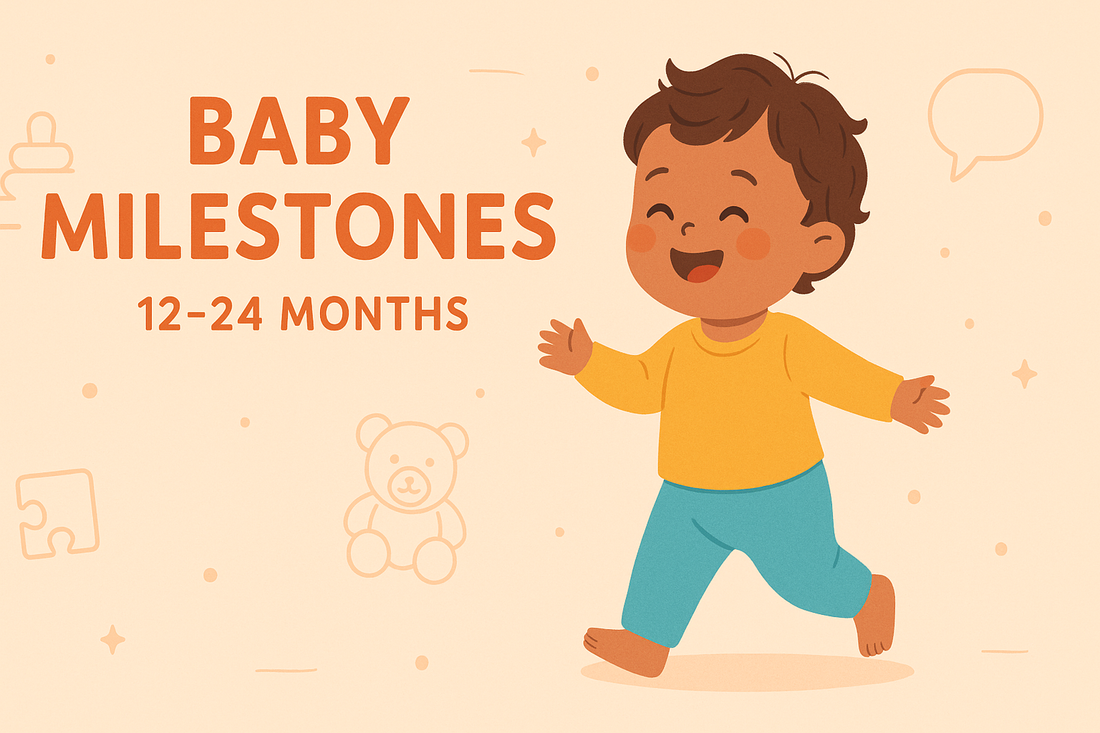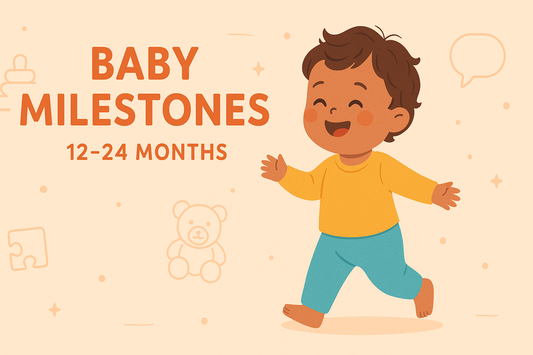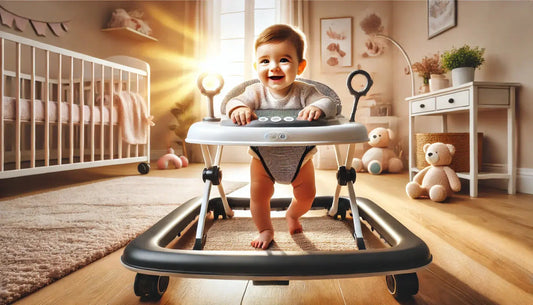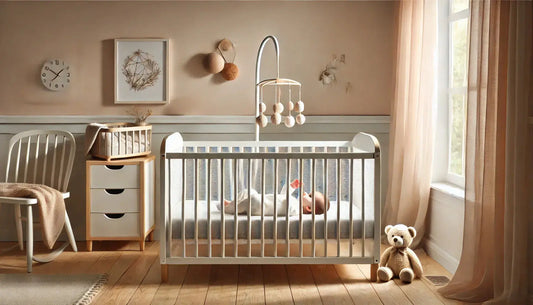
Baby Development Milestones: 12 – 24 Months
Partager
Between their first and second birthday, babies transform into toddlers—mobile, chatty, and fiercely independent. Below you’ll find what typically unfolds during year two, plus a fast‑forward peek at 2 – 5 years so you know what’s on the horizon.
How to Use This Guide
- Not a checklist. Children grow at their own pace; weeks or months of variation are usually normal.
- Watch the pattern. Focus on steady progress rather than individual deadlines.
- When to ask. If skills suddenly stop or regress, or if multiple areas seem delayed, speak to your health‑visitor or pediatrician.
Year Two, Quarter by Quarter
12 – 15 Months
Physical & Motor
- Cruises along furniture; may take first independent steps.
- Picks up tiny objects with thumb‑and‑finger pincer grip.
- Begins to scribble with a large crayon.
Cognitive
- Experiments with cause‑and‑effect (drops spoon to see what you’ll do).
- Points to familiar objects when named.
- Imitates simple daily tasks (brushing hair).
Language
- Says 3–5 clear words besides “mama” and “dada”.
- Understands basic commands with a gesture (“Give it to me”).
Social & Emotional
- Shows separation anxiety peaks.
- Waves “bye‑bye”, claps, enjoys peek‑a‑boo.
15 – 18 Months
Physical & Motor
- Walks well; starts to run stiffly.
- Climbs onto low furniture unaided.
- Stacks 2–3 blocks.
Cognitive
- Loves filling and emptying containers.
- Starts using objects correctly (brush for hair, phone to ear).
Language
- Vocabulary explodes to ~10–20 words.
- Names familiar people in photos.
Social & Emotional
- Hands you a book to read.
- Shows affection with hugs/kisses.
18 – 21 Months
Physical & Motor
- Squats to pick up toys without falling.
- Kicks a stationary ball.
- Begins to feed self with spoon (messily).
Cognitive
- Completes simple inset puzzles.
- Understands “in/on/under”.
Language
- Puts two words together (“more milk”, “all gone”).
- Uses personal pronouns, though not always accurately.
Social & Emotional
- Tests boundaries—throws tantrums when frustrated.
- Shows first signs of pretend play (talks to stuffed animals).
21 – 24 Months
Physical & Motor
- Runs with coordination; may begin to jump in place.
- Builds tower of 4–6 blocks.
- Turns pages one at a time.
Cognitive
- Sorts shapes and colours.
- Begins to understand two‑step directions.
Language
- Vocabulary 50+ words; many toddlers experience a “word spurt”.
- Uses simple sentences of 3–4 words.
- Names self in mirror.
Social & Emotional
- Parallel play emerges—plays near, not yet with, peers.
- Expresses a range of emotions; may say “mine” frequently.
Developmental Red Flags (12 – 24 Months)
Seek professional advice if by 18 months your child:
- Has not started walking independently.
- Says no words or does not respond to their name.
- Shows no interest in others, avoids eye contact.
Seek advice if by 24 months your child:
- Cannot push a wheeled toy.
- Uses fewer than 15–20 words or does not combine words.
- Loses previously mastered skills.
Looking Ahead: 2 – 5 Years at a Glance
| Age | Motor | Language | Social/Play |
|---|---|---|---|
| 2 – 3 yrs | Jumps with both feet; begins tricycle | 2–3‑word sentences, 200+ words | Begins true turn‑taking play |
| 3 – 4 yrs | Hops, stands on one foot | Uses plurals, tells simple stories | Imaginary friends common |
| 4 – 5 yrs | Skips, catches small ball | Speaks in full paragraphs, asks “why” constantly | Cooperative play with rules |
Tip: Preschool years are prime time for language, social skills, and self‑help independence (dressing, toileting, serving snacks).
Final Thoughts
Every child’s journey is unique. Use milestones as guideposts, not grades. Celebrate progress, offer plenty of safe exploration, and seek guidance when in doubt. You’re doing great—parenthood is a marathon, not a sprint!
For individual concerns, always consult your child’s health professional.



